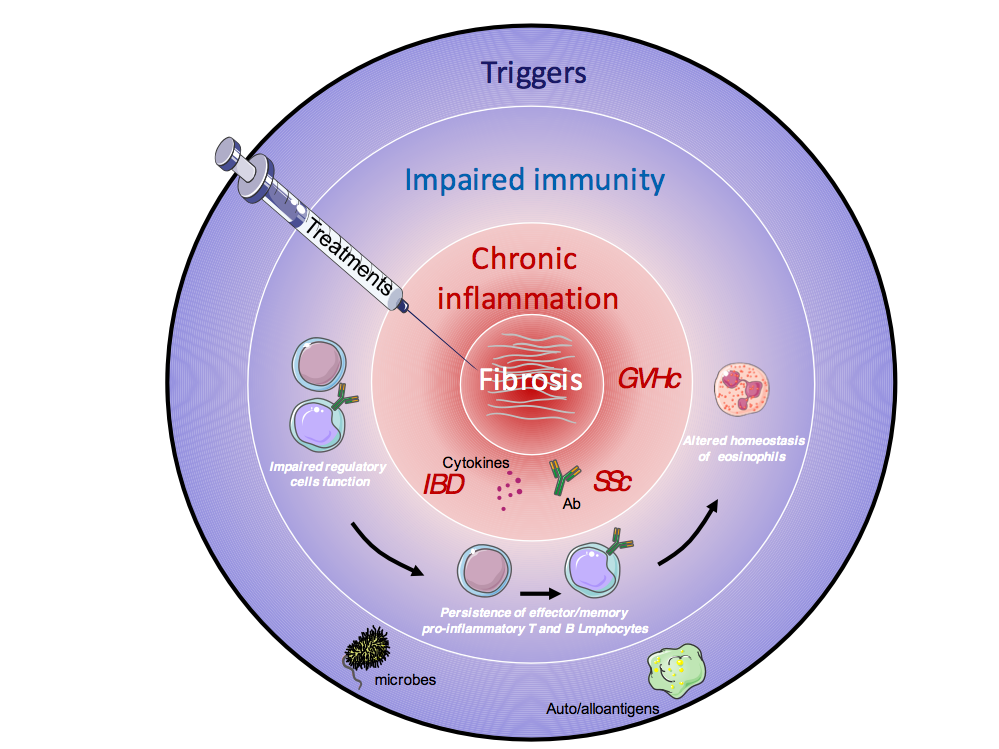From chronic inflammation to fibrosis : role of immune cells
Chronic inflammatory diseases are characterized by a sustained inflammatory state and possible exacerbations. Over time, this chronic inflammation can further be complicated by fibrosis, which increases morbidity and mortality. T and B cells are thought to have a major role in these disease processes. Indeed, these long-lived cells (persisting for several years in the body as either memory or regulatory cells) have a role in chronic inflammation and fibrogenesis through their abilities to secrete cytokines, sustain auto-antibody production and/or interact with other immune cells. Moreover, the impaired homeostasis of innate cells such as eosinophils has also been linked to chronic inflammation and tissue remodeling.
Our teams aim to determine the immunological mechanisms underlying the maintenance and revival of chronic inflammation and the development of fibrosis in prototypic chronic IMIDs that can be complicated by fibrosis such as IBDs, SSc, and cGvHD.
